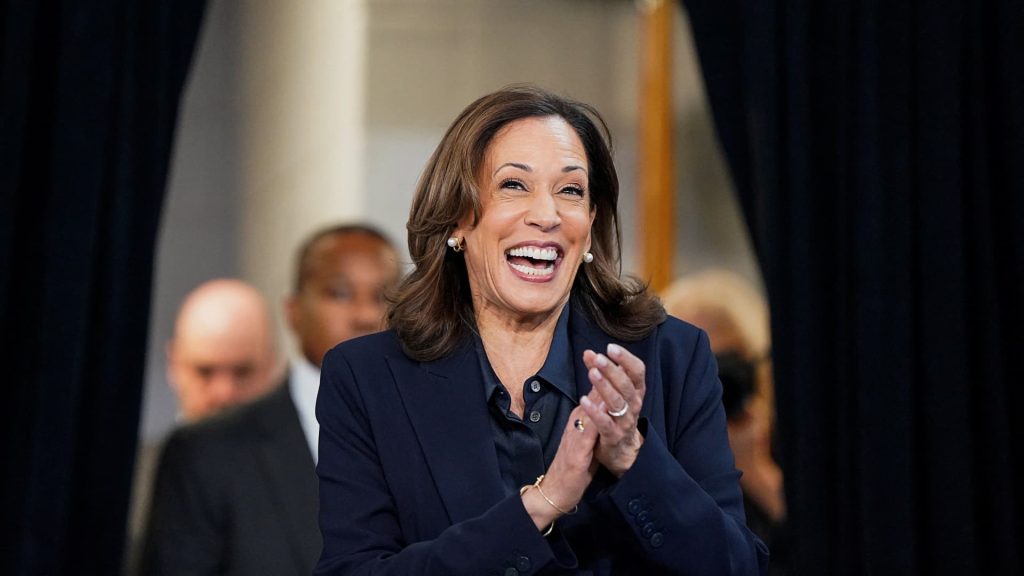Vice President Kamala Harris is embarking on a media blitz this week in an effort to reach undecided voters and drown out former President Donald Trump in the final leg of the presidential race. The campaign will include a mix of interviews airing on conventional networks and alternative platforms to target a wide swath of voters. To kick off the week, Harris will be featured on the popular “Call Her Daddy” podcast with Alex Cooper, followed by a sit-down interview with CBS’ “60 Minutes” on Monday evening alongside her running mate, Minnesota Gov. Tim Walz. The Trump campaign declined a “60 Minutes” interview after initially accepting the invitation.
On Tuesday, Harris will appear on ABC’s “The View,” CBS’ “The Late Show with Stephen Colbert,” and “The Howard Stern Show” in New York. On Thursday, she will participate in a townhall with Univision, a major Spanish-language television broadcaster. The Trump campaign is also taping a separate Univision townhall. Despite criticism from Republican opponents for focusing on scripted rallies and speeches rather than media interviews and more improvised environments, Harris is ramping up her media appearances with 30 days until the Nov. 5 election and early voting already underway.
During the early stages of her campaign, Harris dominated the news cycle after entering the presidential race in July following President Joe Biden’s decision not to seek reelection. However, Trump has since worked to regain media attention through appearances on Fox News and interviews on popular podcasts targeting young men, such as “This Past Weekend w/Theo Von” and the “Lex Fridman Podcast.” He has also done interviews with figures such as Dr. Phil, Shawn Ryan, a former Navy Seal, and close ally Elon Musk on the X social media platform in August.
Throughout her fast-tracked campaign, Vice President Harris has participated in interviews with prominent media outlets such as CNN, panel discussions with the National Association of Black Journalists, MSNBC, and various local news outlets. With the election quickly approaching, Harris and Trump are engaged in a heated battle for airtime, with both campaigns recognizing the importance of reaching undecided voters and influencing their game-changing election choices. As early voting progresses, media appearances and interviews play a crucial role in shaping public perception and garnering support from key demographics. Harris’ diverse media strategy aims to connect with a wide range of voters and counter any attempts by Trump to dominate the media landscape in the critical weeks leading up to the election.















